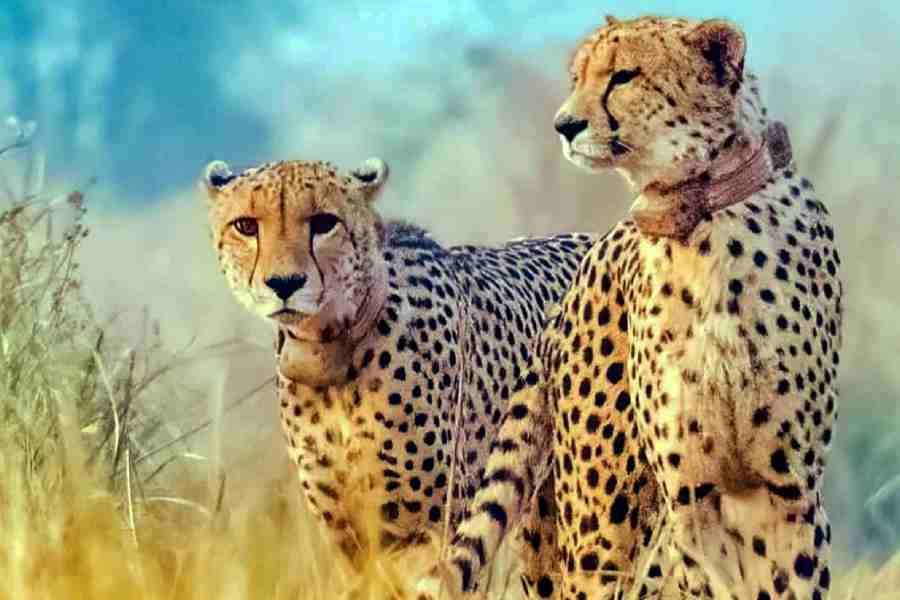With three cheetahs and as many cubs dying at the Kuno National Park in Madhya Pradesh in three months, Union Environment Minister Bhupender Yadav Thursday said, "We take responsibility for whatever happened", but asserted that the translocation project will be a major success.
Prime Minister Narendra Modi released the first batch of eight spotted felines from Namibia into a quarantine enclosure at Kuno in Madhya Pradesh on September 17 last year. In a second such translocation, 12 cheetahs were flown in from South Africa and released into Kuno on February 18.
Three cheetahs died in March and April. Of the 17 remaining adult cheetahs, seven have already been released into the wild. The death of three adult cheetahs and three of the four cubs born to a female Namibian cheetah, Sisaya, has prompted questions from several experts on the suitability of the habitat and wildlife management.
"It's an international project and we had anticipated mortality. It's mentioned in our report too (cheetah introduction action plan). One of the cheetahs was unwell before it even came to India. We have provided the reasons for the deaths of the two other (adult) cheetahs.
"The three cubs died due to extreme heat. The temperature soared to 47 degrees Celsius... We take responsibility for whatever happened. However, the project will be a major success and the whole country will be proud of it," he said in reply to a question at Times Network's conclave.
Shortly after news emerged about the death of two cheetah cubs last week, the Centre set up an 11-member high-level steering committee to review and monitor the progress of the Cheetah reintroduction programme.
The government and experts involved in the project have maintained that the mortalities are within the normal range. The action plan for cheetah reintroduction anticipated up to 50 per cent mortality in the first year of relocation.
The steering committee met for the first time on Wednesday and decided to release seven more cheetahs, including two females, into the wild by the third week of June.
Except for the headline, this story has not been edited by The Telegraph Online staff and has been published from a syndicated feed.










